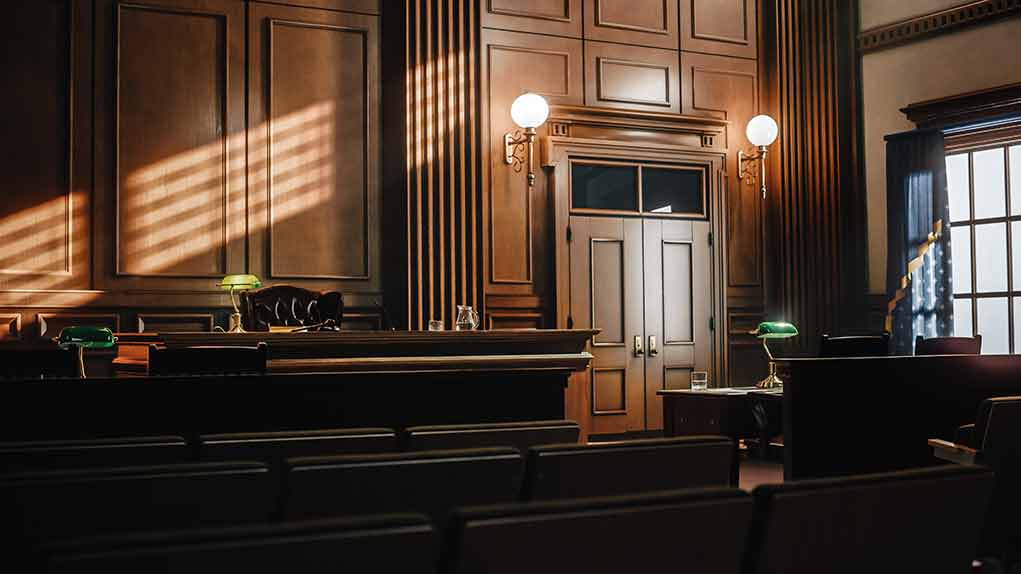
President Donald Trump’s executive order to end birthright citizenship for children of undocumented immigrants sparks a heated legal battle over the 14th Amendment’s interpretation.
Key Takeaways
- Trump’s executive order aims to end birthright citizenship for children of undocumented immigrants, focusing on the “subject to the jurisdiction thereof” wording in the 14th Amendment.
- Multiple lawsuits have been filed by state attorneys general, the ACLU, and other groups challenging the order’s constitutionality.
- Two judges have blocked the order, with one federal court issuing a national preliminary injunction on Wednesday and another blocking it on Thursday.
- The interpretation of the 14th Amendment’s birthright citizenship clause is under scrutiny.
- The controversy may lead to the Supreme Court clarifying the 14th Amendment’s meaning.
Executive Order Ignites Legal Firestorm
President Trump’s recent executive order to end birthright citizenship for children of undocumented immigrants has set off a legal firestorm, challenging long-held interpretations of the 14th Amendment. The order, which focuses on the “subject to the jurisdiction thereof” wording, has prompted multiple lawsuits from 22 state attorneys general, the ACLU, and various advocacy groups.
U.S. District Judge John Coughenour temporarily blocked the executive order in January, scheduling further hearings to consider a preliminary injunction. U.S. District Judge Deborah Boardman then heard arguments on the case on Wednesday, February 5, ultimately deciding to grant a nationwide preliminary injunction. Coughenour then issued yet another ruling on Wednesday, calling birthright citizenship an “unequivocal constitutional right.” This legal battle underscores the profound implications of constitutional interpretation and the potential for a Supreme Court showdown.
Debating the 14th Amendment
At the heart of this controversy is the interpretation of the 14th Amendment’s birthright citizenship clause. There is division on whether the amendment automatically grants citizenship to anyone born on U.S. soil, regardless of their parents’ immigration status.
“Often called the birthright citizenship clause, this text actually requires more than birth to become a national citizen,” says University of Richmond School of Law Kurt Lash. “One must also be born subject to the jurisdiction of the United States. The meaning of that second requirement remains a subject of significant debate.”
The Department of Justice argues that the order addresses “misimpressions” of the 14th Amendment and claims that birthright citizenship incentivizes illegal immigration. However, critics argue that the president cannot unilaterally redefine constitutional protections through an executive order.
States and Advocacy Groups Push Back
Democratic attorneys general from 22 states filed a lawsuit to block the executive order, arguing that birthright citizenship is settled law and cannot be changed by presidential decree. Connecticut Attorney General William Tong, himself a birthright citizen, emphasized the personal impact of the order.
“The 14th Amendment says what it means, and it means what it says — if you are born on American soil, you are an American. Period. Full stop,” he said.
Meanwhile, in her recent ruling regarding the case of five pregnant undocumented women, Boardman said, “It has been said the right to U.S. citizenship is a right no less precious than life or liberty. If the court does not enjoin enforcement of the executive order, children subject to the order will be denied the rights and benefits of U.S. citizenship and their parents will face instability.”
White House’s Stance
The Trump administration reportedly anticipated legal challenges when crafting the executive order. The White House has framed the lawsuits as political resistance, with deputy press secretary Harrison Fields stating, “Radical Leftists can either choose to swim against the tide and reject the overwhelming will of the people, or they can get on board and work with President Trump.”
As the legal battle heats up, the future of birthright citizenship hangs in the balance. All eyes are on the courts to determine whether this long-standing interpretation of the 14th Amendment will stand or fall. The outcome of this legal showdown could have far-reaching implications for immigration policy and constitutional law in the United States.
Sources
- Birthright Citizenship: The Legal Debate Heats Up
- Judge issues nationwide injunction blocking Trump’s bid to end birthright citizenship
- 22 states sue to stop Trump’s order blocking birthright citizenship




